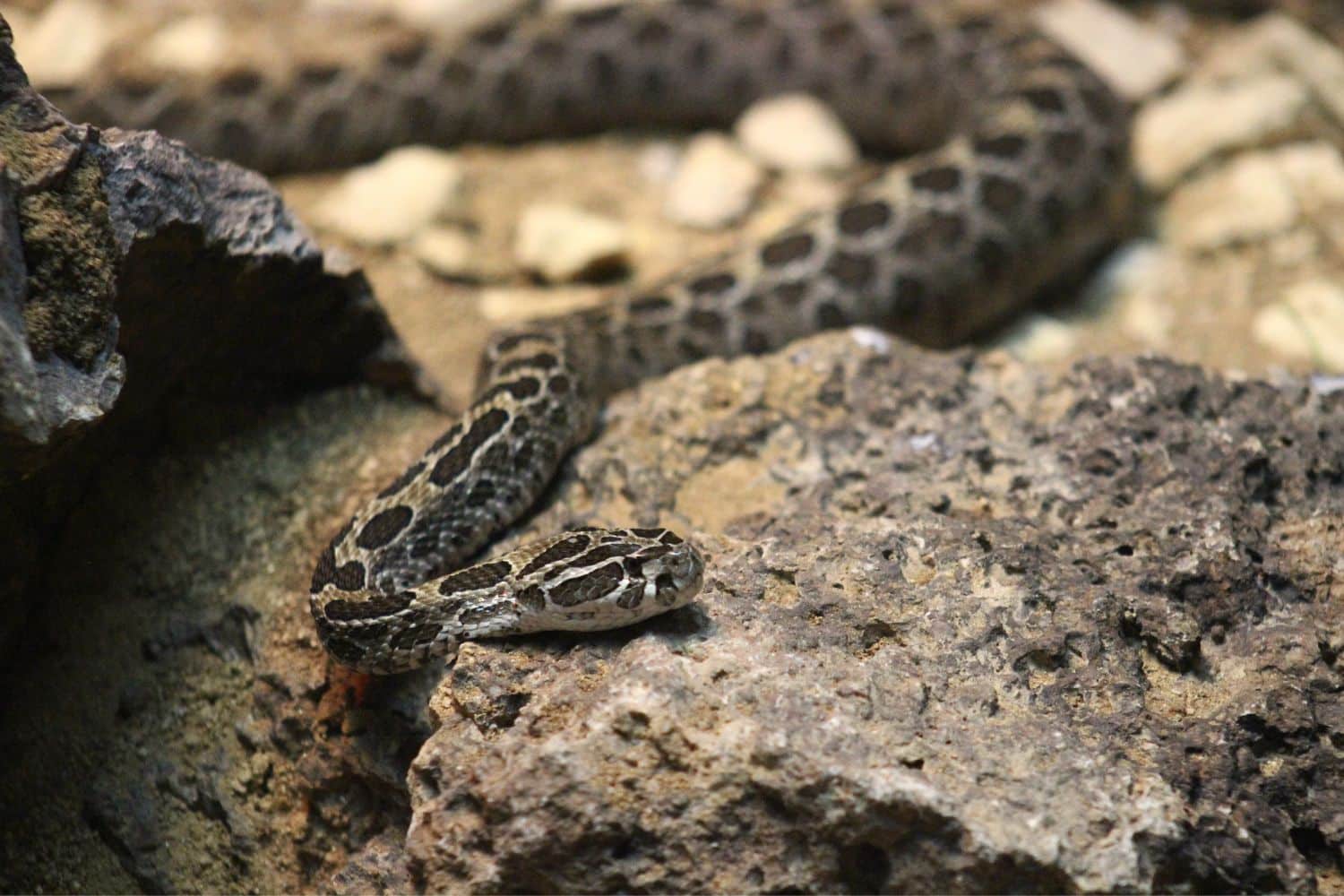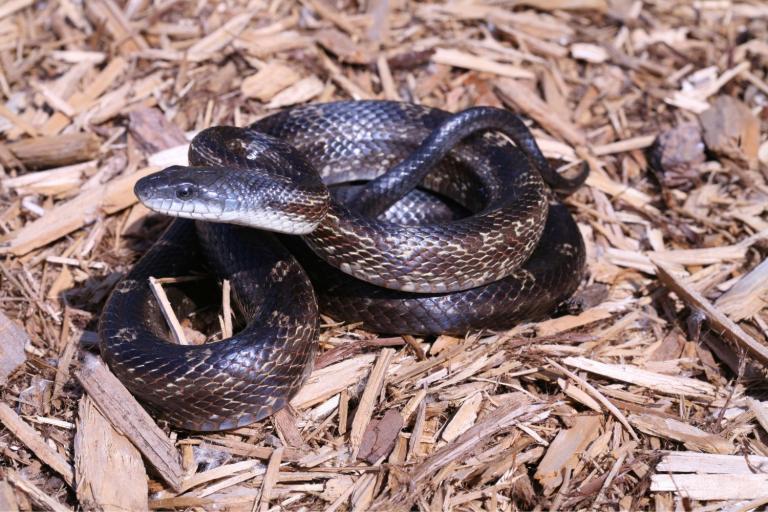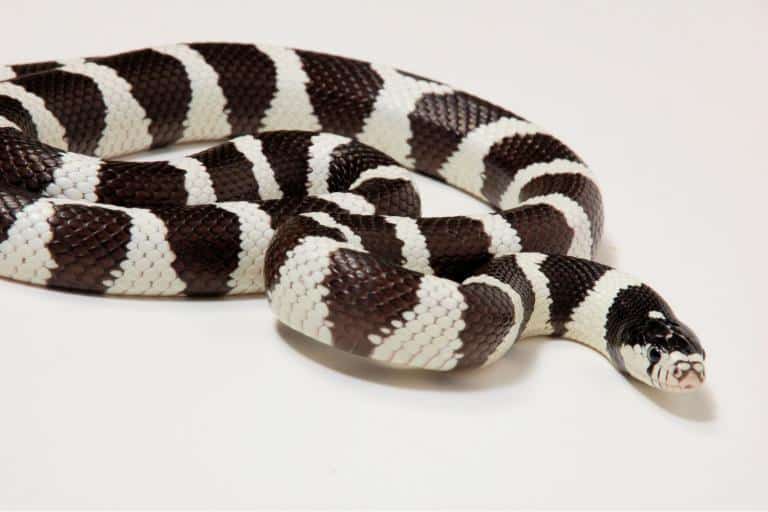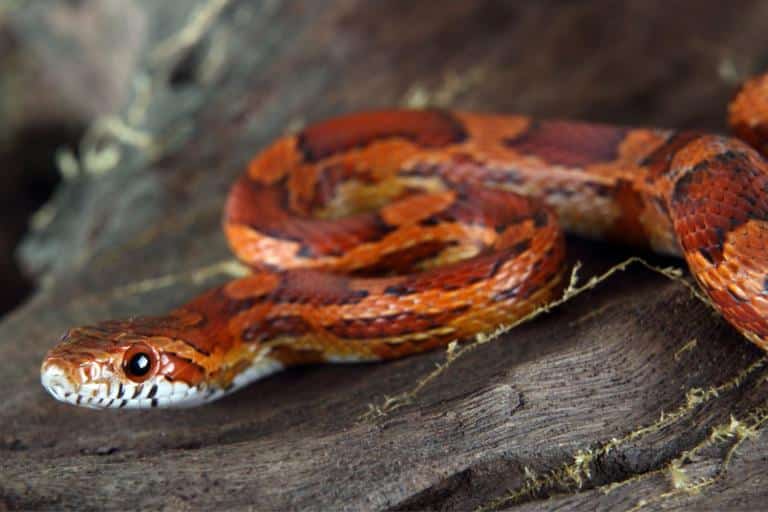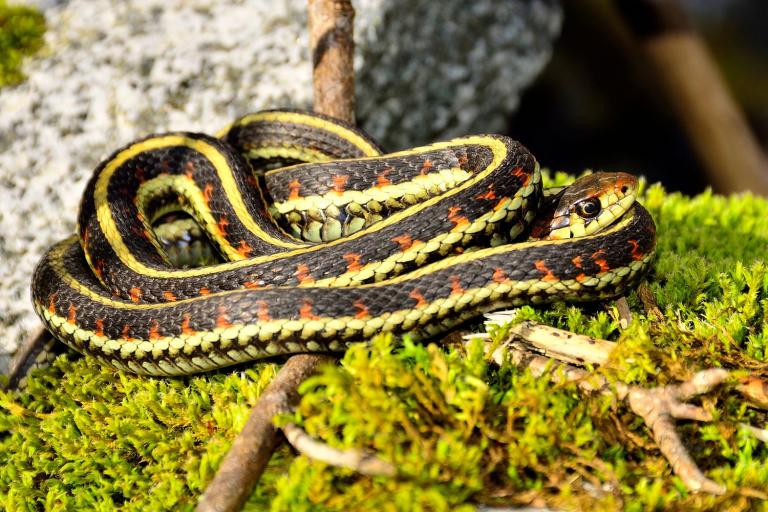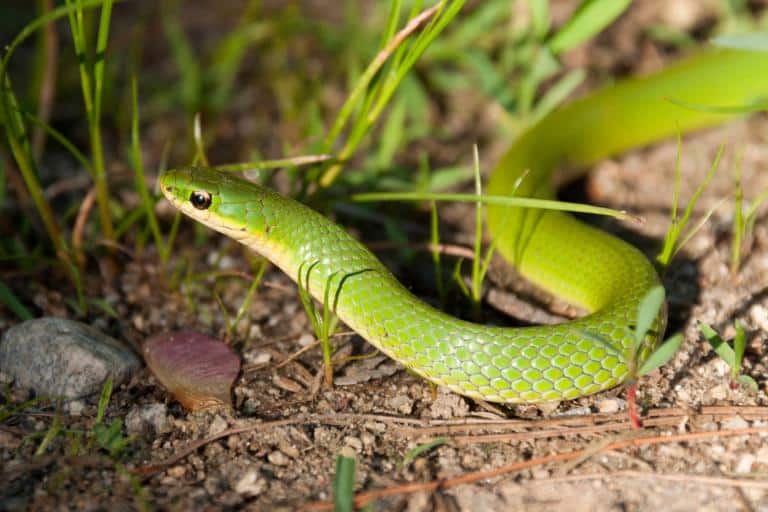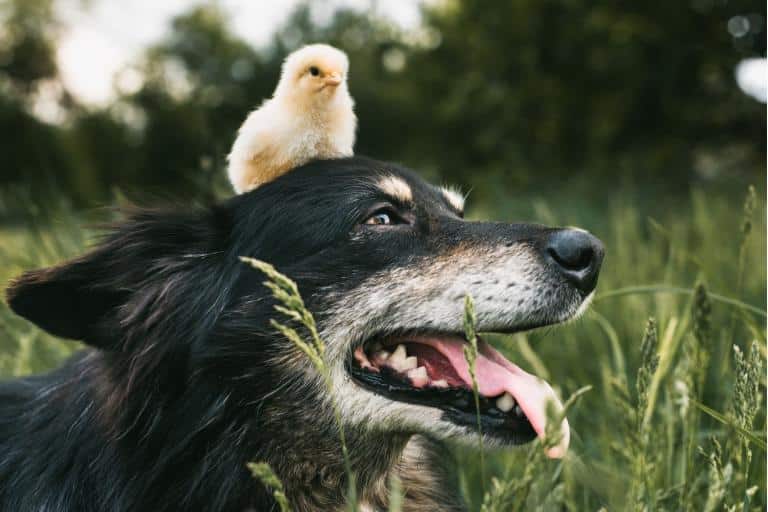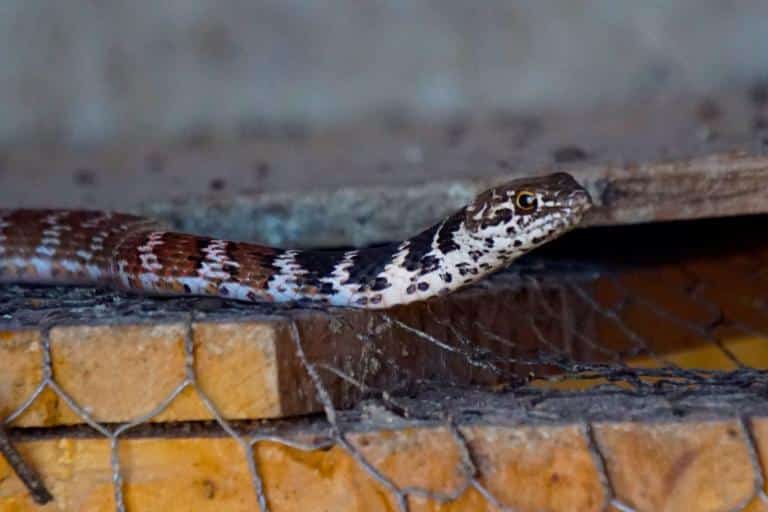
Chances are that just reading this blog and looking at the photos included will send a shiver up your spine. Snakes are notorious for being conniving, slithering creatures that will strike terror into the hearts of even the bravest individuals. If you are dealing with snakes getting into your coop, I am very sorry and hope this guide can help you out. Continue reading to learn some tips on how to keep snakes away from chickens and their eggs.
What You Should Know about Snakes
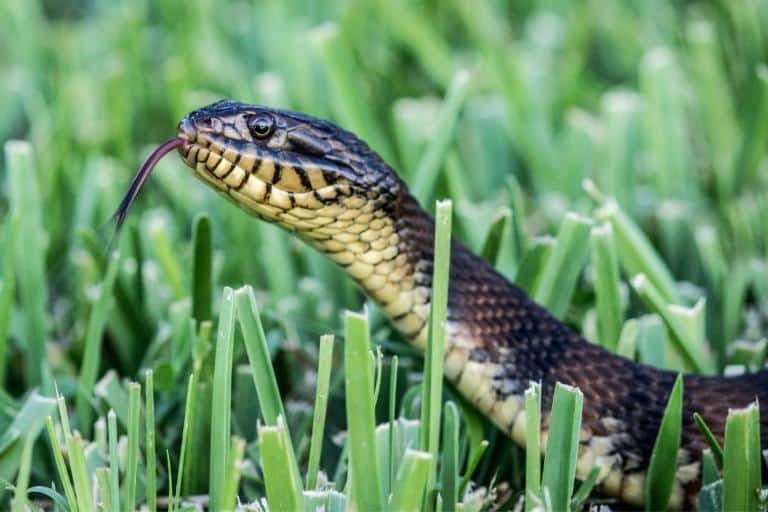
Before you wish to fight your enemy, you must understand them and how they operate to some degree, right? Well, the same goes for snakes. Let’s discuss some things you should know about snakes, including what breeds pose the greatest threat to your backyard flock.
Certain Breeds Pose a Greater Threat to Your Flock
While snakes are not the animals you want to see creeping around your coop, the truth is that some snakes do not pose a threat to chickens, and may be beneficial in controlling the rodent population. Check out the section below for some insight into what snakes are harmful to your flock and what snakes you don’t need to worry about.
Harmful snakes
Harmless Snakes
Venomous Snakes Usually Pose a Greater Threat
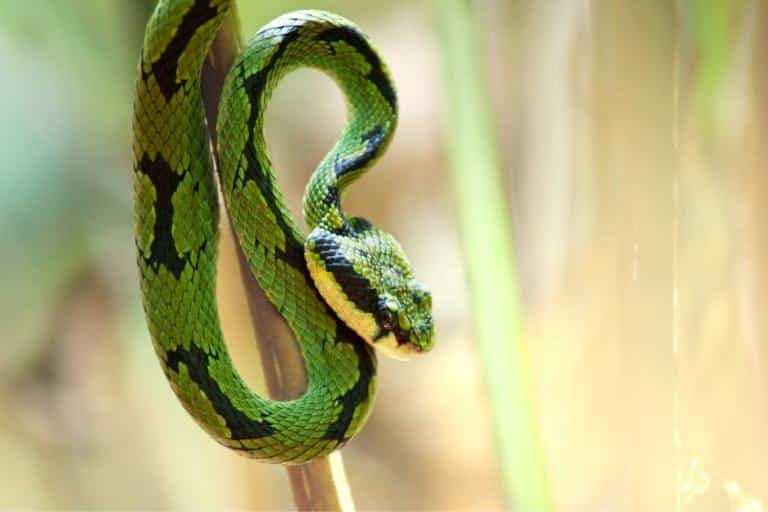
As one would assume, venomous snakes are usually going to be a greater threat to your flock than nonvenomous snakes. Certain venomous snakes like pit vipers tend to exhibit predatory behavior and may actively seek prey, while nonvenomous snakes are not as likely to do so.
Of course, venomous snake bites are much more severe, potentially causing death in your chickens. Nonvenomous snakes may still prey on your chickens and steal their eggs, but their bite will not do as much damage. (If you are dealing with snakes in your coop, especially venomous snakes, please use much caution!)
Snakes Usually Hunt at Night

Like many chicken predators, snakes generally hunt at night, though this is not always the case. Snakes are ectothermic, meaning that their body is regulated by the external environment. At night the temperature is cooler and therefore more comfortable to snakes.
In the evenings and nighttime, prey animals like rodents and some insects are also generally more available. Because some snakes display crepuscular behavior, (being active during dawn and dusk) they may use the transition times between day and night to do their hunting. Many chicken predators do their hunting at dawn and dusk.
Many Snakes are Opportunistic Hunters
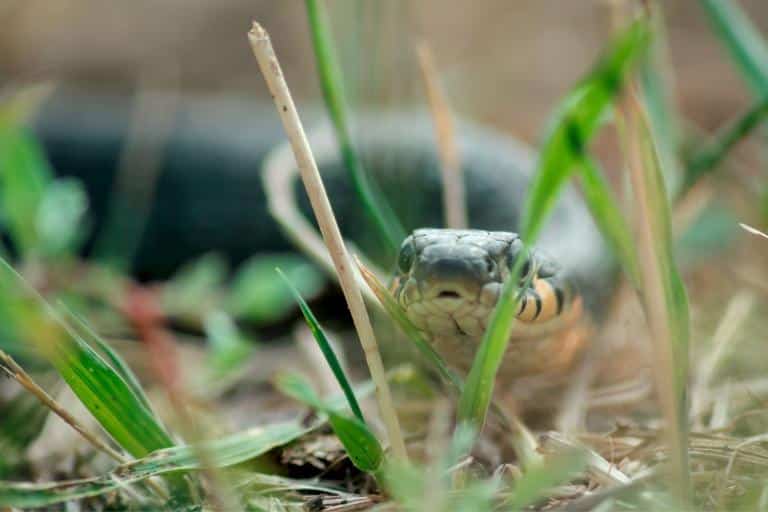
Snakes are considered to be opportunistic hunters because they are highly adaptive and take advantage of a wide variety of prey. They adjust their feeding strategies based on the opportunities around them. This means that they eat a varied diet, and can explore large areas in search of food. This is not good news for your chickens or eggs, as snakes will most likely stick around and wait patiently once they discover you have something they might want.
How To Keep Snakes Away from Chickens
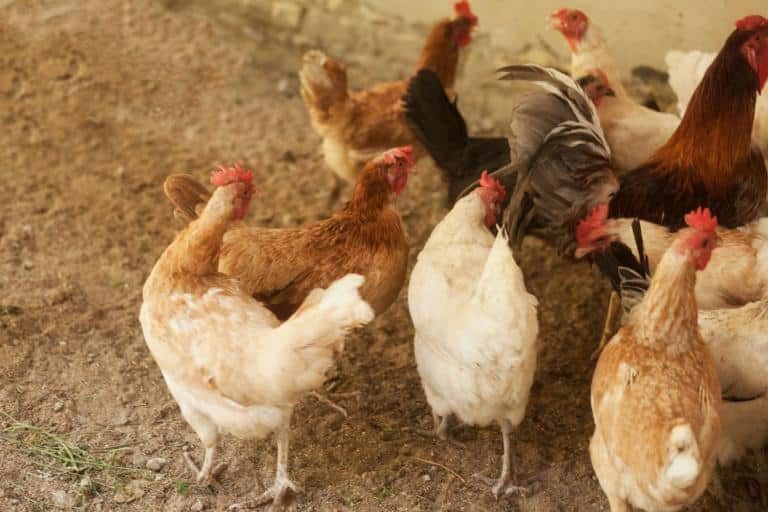
Now that you know a little bit about these reptiles, let’s look at some ways we can deter them from your flock. Here are some ways to learn how to keep snakes away from chickens.
Use Repellents

Certain repellents around the coop can help steer snakes away. Here are some options that may work for you and some directions on how to use these repellents. Keep in mind that these are not necessarily fool-proof and may not be very effective on their own.
Mothballs– Place mothballs around the perimeter of the area you want protected.
Sulfur– Sprinkle sulfur powder or granules around the coop. May need to be repeated over time.
Essential Oils– Mix some essential oils, like cinnamon, cedar, or eucalyptus oil in water and spray around the perimeter of the coop.
Garlic and Onion-This strong smell is known to repel snakes. Try planting these around the coop or crush up some garlic to sprinkle around.
Vinegar– Try sprinkling a vinegar solution around the perimeter of the coop.
Set Up Decoys

Snakes will not be as likely to hunt in a certain area if they sense there are other chicken predators around. Though this may not always work, setting up decoys like plastic owls, hawks, or other predatory animals may help keep snakes off the property. Like many of these methods, this method may not be effective on its own but will work better when paired with other methods and a sturdy coop.

If you enjoy planting and gardening, then this snake-proofing method might be an enjoyable one for you. Maybe you are wondering how to keep snakes away from chickens, and don’t want to spend too much money or time on some of these methods. Have you considered planting some herbs or shrubs around the coop? Here are some plants that are considered foul to snakes and may keep them away:
- Marigolds
- Rosemary
- Lemongrass
- Thyme
How to Snake Proof a Chicken Coop
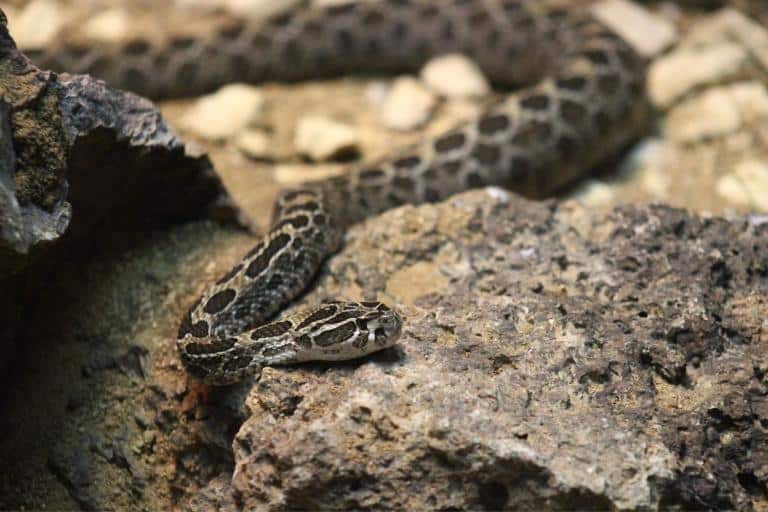
The truth is that none of those above methods may even be completely effective without a strong coop. What good will all your snakeproofing methods do if that awful snake keeps slipping through the cracks in your coop windows? The most important thing you can do to protect your chickens from snakes is to build a snake-proof fortress. How does one do that you ask? Let’s find out.
Secure all Openings
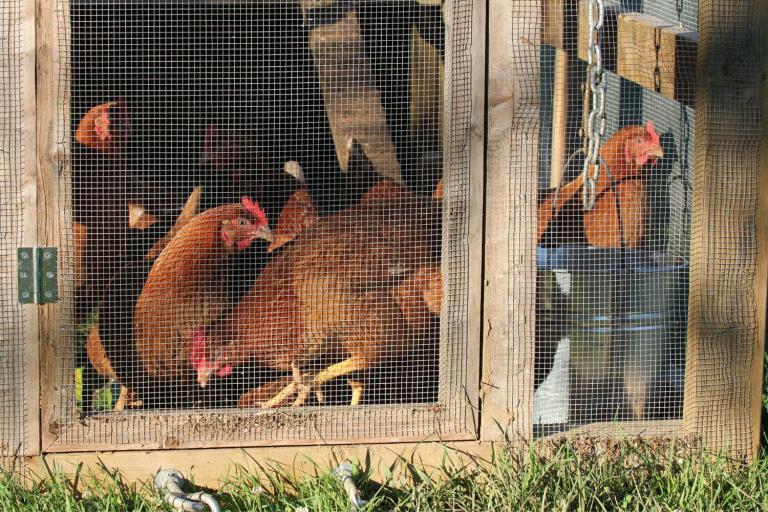
One of the most vital things to do in learning how to keep snakes away from chickens is to secure openings in the coop. Snakes are small, slimy creatures and may get through spaces you thought were too small for them. If you suspect snakes are sneaking into the coop, check all the fencing for any openings, and check the coop for cracks in the windows or doors. Check carefully, your chicken’s life may be at risk!
Elevate your Coop
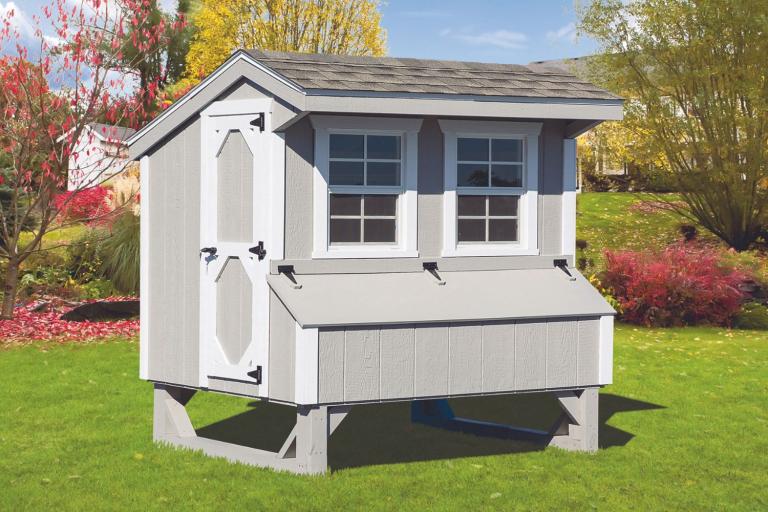
If your coop is resting on the ground, you may find it helpful to elevate your coop. Consider putting it on wheels, or setting it on stilts a foot or two off the ground. This will make it much more difficult for snakes to slither their way in.
In search of a good predator-proof coop? Check out The Hen House Collection!
Remove Food in the Vicinity

Are you really wondering how to keep snakes away from chickens and not finding many answers? Could there be something aside from chickens that is drawing snakes to your coop? Sometimes we might be attracting snakes without even realizing it. Maybe you enjoy giving your chickens leftover scraps, but that could be just the thing that is bringing snakes into the coop.
Though snakes don’t generally feast on kitchen scraps, their favorite little rodent prey does, and that may be what is drawing them to the coop scrap pile. Try cleaning up scraps in the evening and securing food containers. This may keep rodents away, and along with them, those dreaded slithering beasts.
Use Snake Proof Mesh Flooring
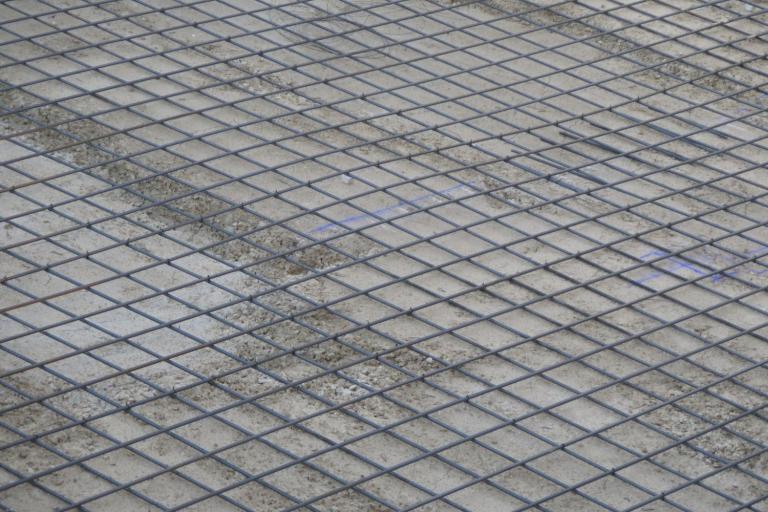
Snakes are excellent at burrowing, and may even be able to get under the structure of your coop. Be sure that the flooring is secure and will not allow entry to predators in any way. Snakes can also pretty easily slither under fencing. Consider installing a skirt or apron made from hardwire cloth around the coop and run area that extends horizontally outward, or use mesh flooring under the run area to keep snakes out completely. Check the mesh flooring and hardwire cloth regularly for areas that may be compromised.
Keep the Area Clean
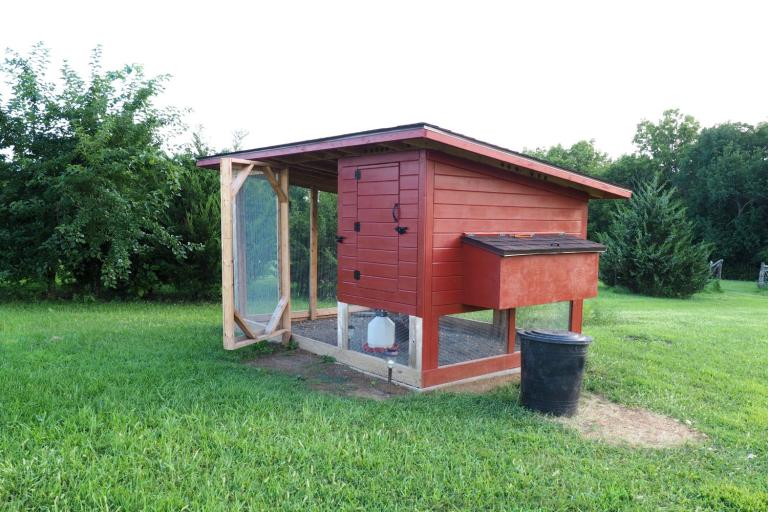
A coop that is under trees or surrounded by large overgrown bushes or shrubbery may be asking for trouble. Keep plants trimmed and well maintained, and keep debris cleared away. Snakes are not going to enjoy hunting out in the open as much and may steer clear of your coop if they see it is too exposed.
Invest in Strong Doors
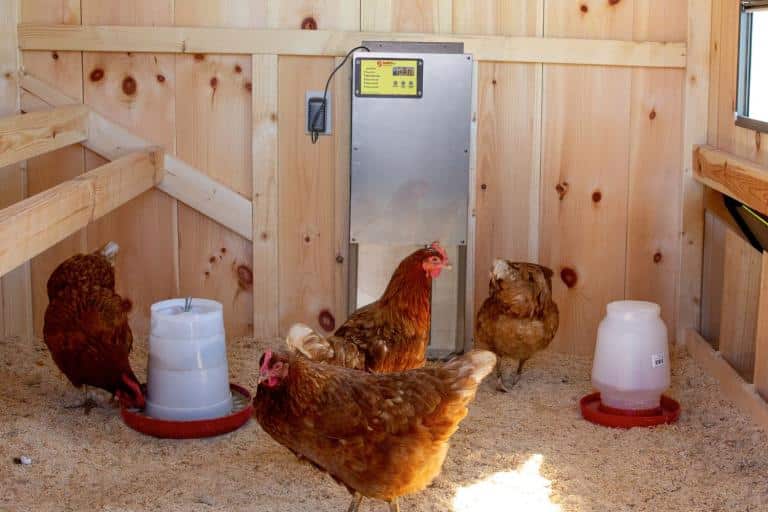
One of the key chicken coop essentials is a good door. A good door should allow your chickens to get in and out on their own but should be strong enough to keep out chicken predators when the darkness settles in.
Be sure to invest in heavy-duty coop doors that will be secure during the night. A good coop door option to secure your coop is an automatic coop door. This type of door opens and closes at the times you set, and can automatically close when it gets dark outside. In the morning when the sun rises and your chickens start stirring, the coop can be set to open.
Conclusion
Hopefully, you learned a thing or two about these scaly reptiles. If you suspect you may be dealing with some other type of predator, we could have some answers for you. Check out our other predator blogs featuring bears, foxes, hawks, raccoons, and dogs.
Download our free predator guide for some insight on how to protect your chickens from a variety of predators. Happy predator-proofing!

